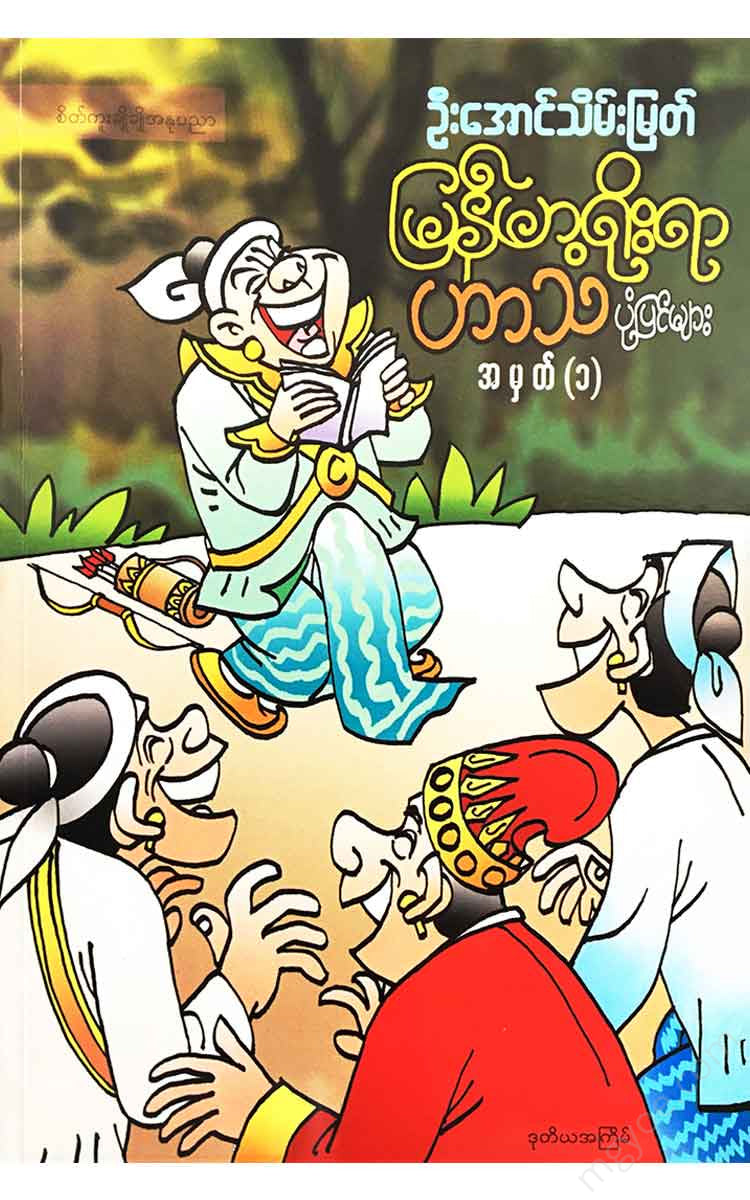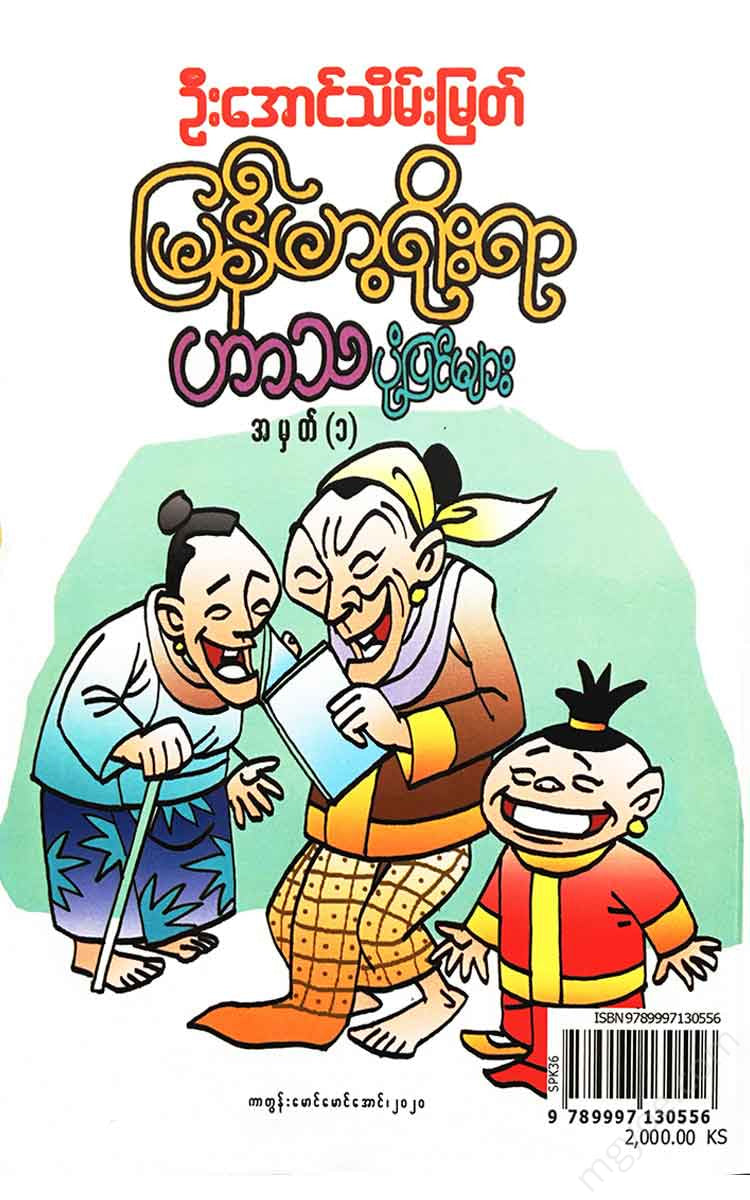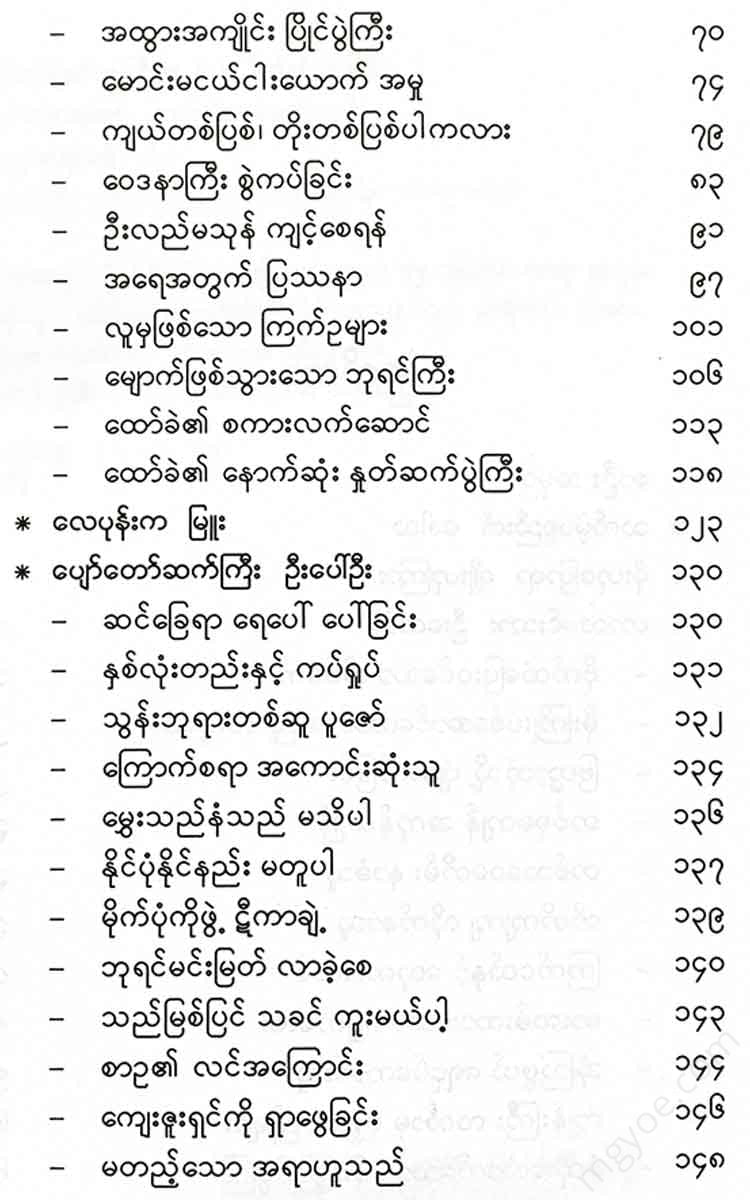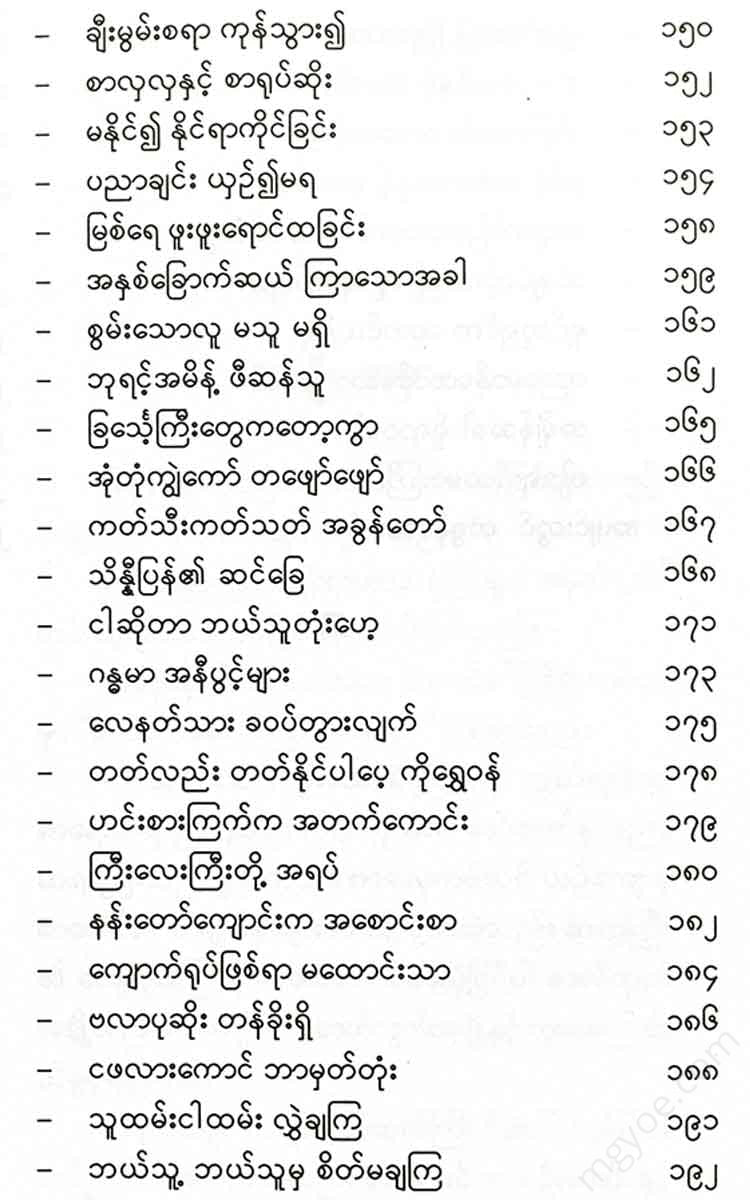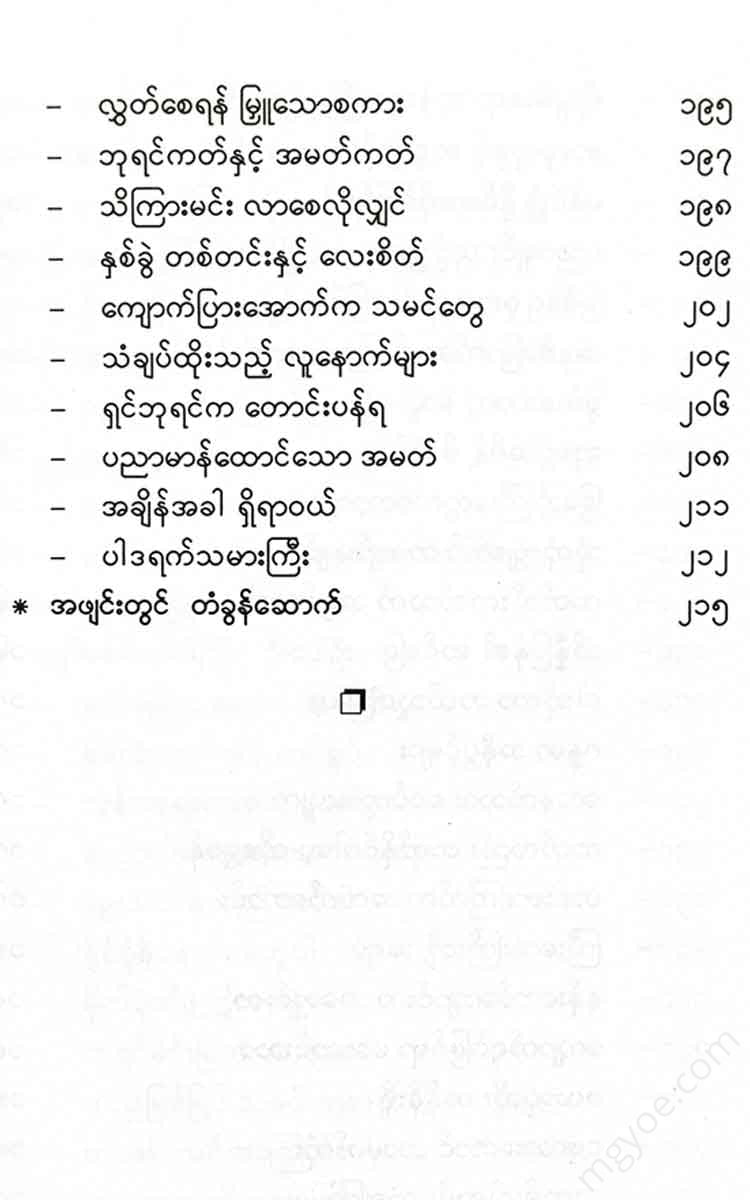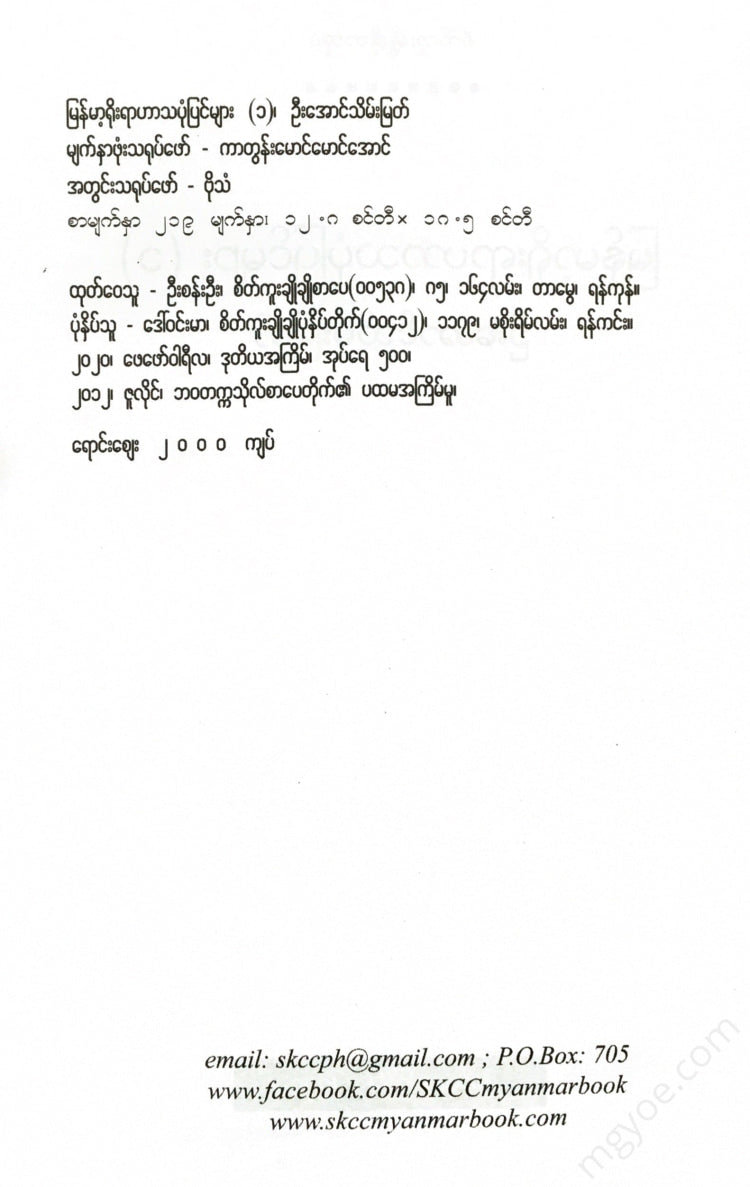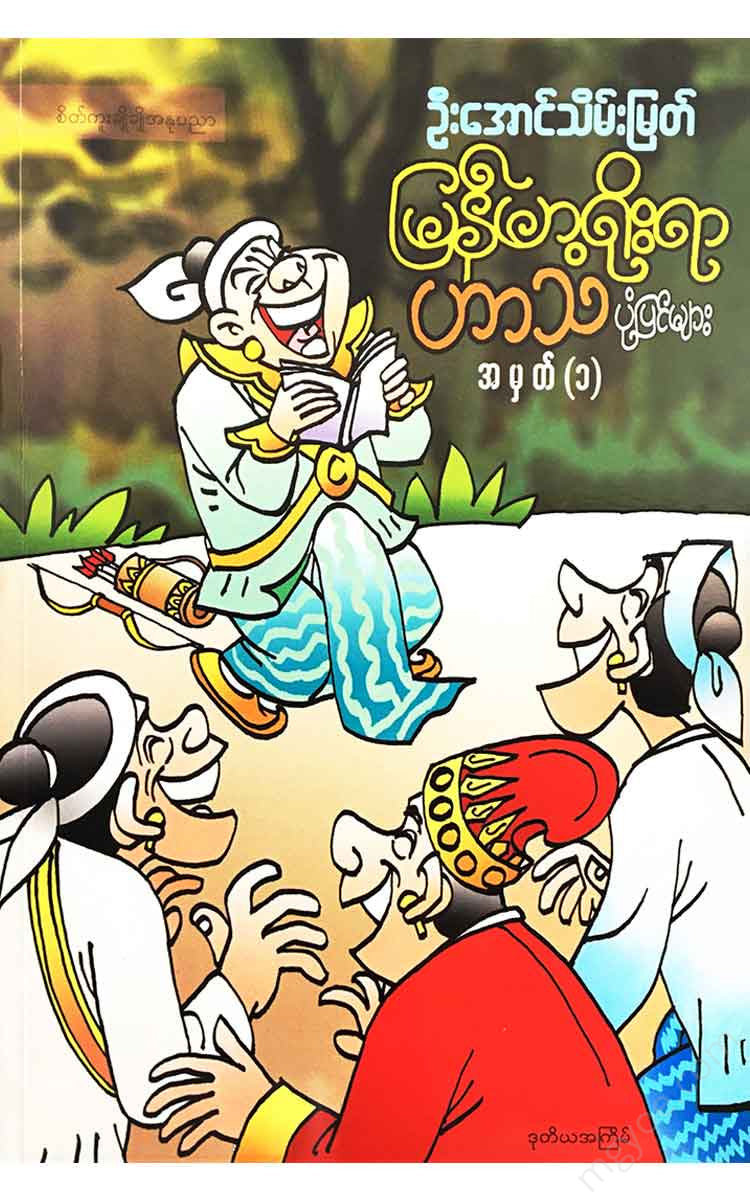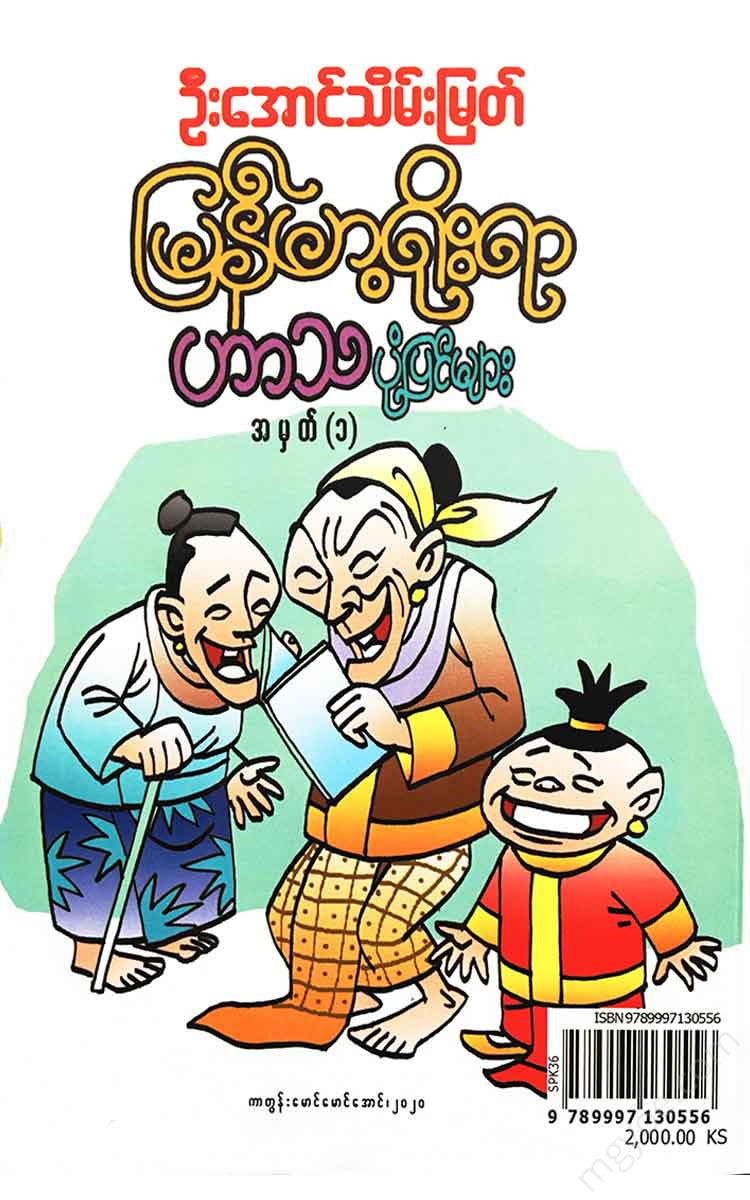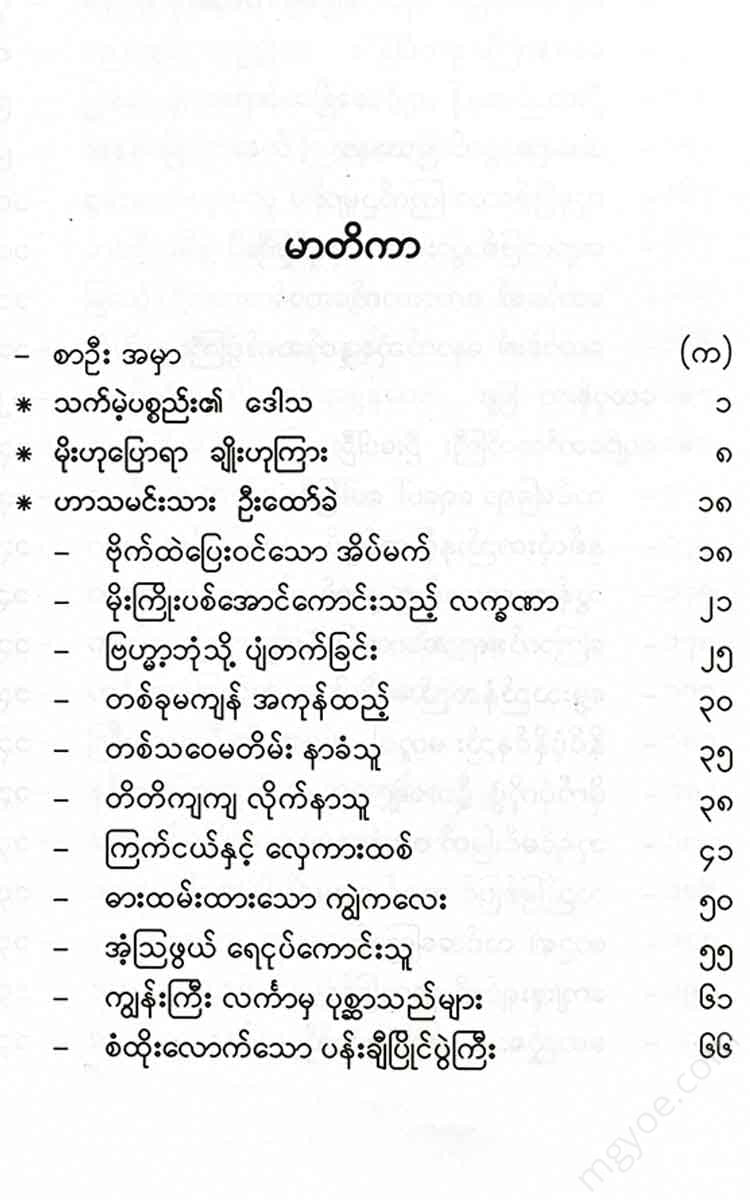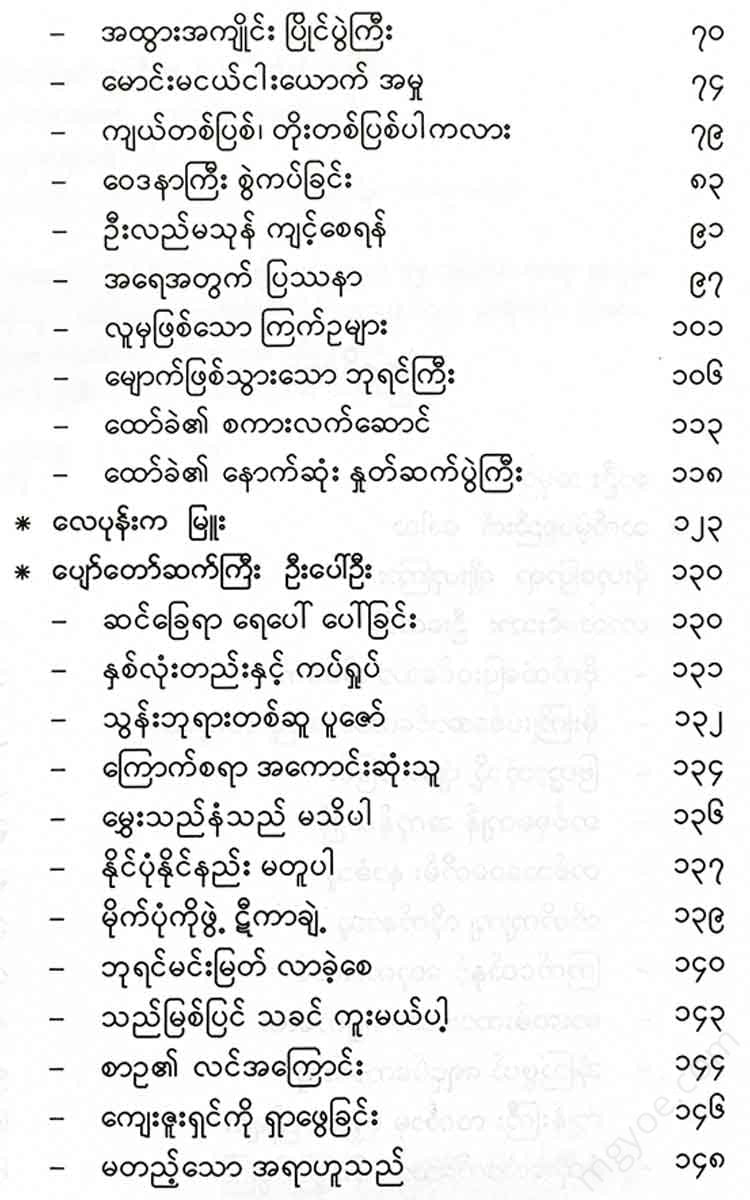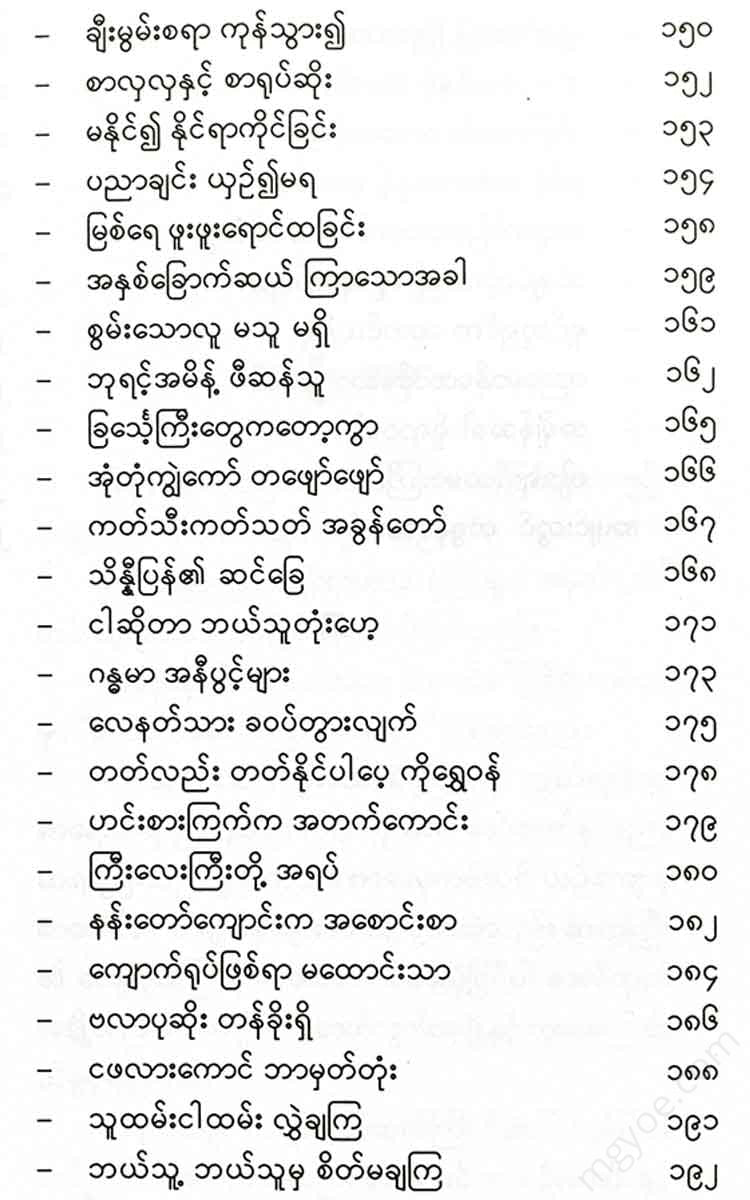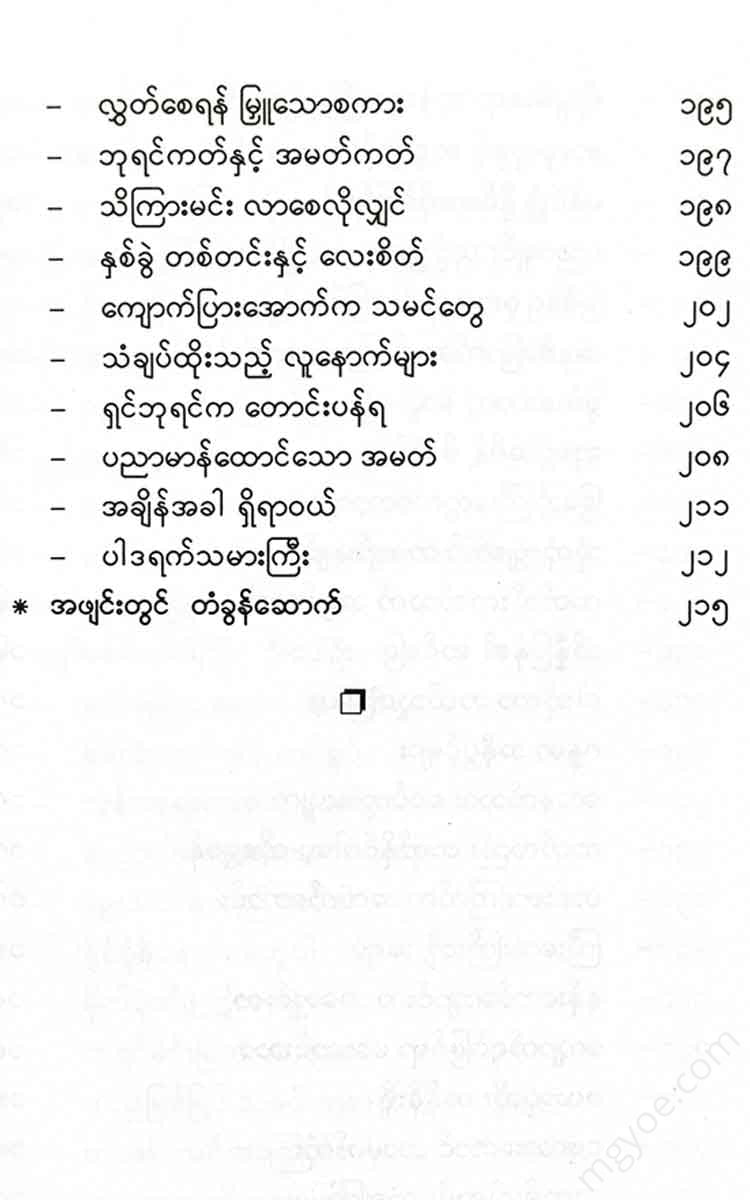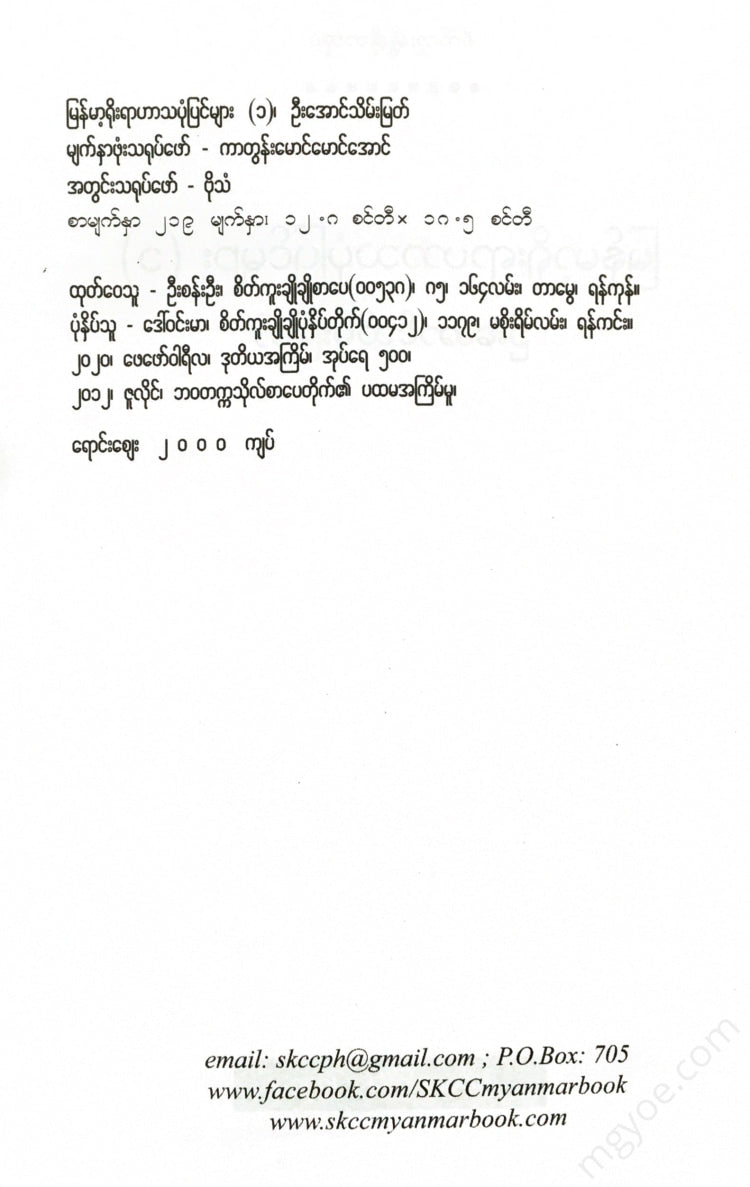စိတ်ကူးချိုချိုစာပေ
U Aung Thein Myat - Myanmar Traditional Humorous Stories No. 1
U Aung Thein Myat - Myanmar Traditional Humorous Stories No. 1
Couldn't load pickup availability
The wrath of inanimate objects
Long ago, there was a “big dharma knife” in Bagan. The big knife was shaped like a betel nut knife, and its size was large enough to cut a person.
This is how the big law enforcement officer works: “I won’t take your stuff.”
If two people argue, "You stole my property," they don't have to go to the judge. They don't have to provide evidence. They just have to go to the big courthouse in the middle of town.
If two disputants stand before the big hammer, one of them must take the oath first. For example, let's say the accuser is the plaintiff.
He put his wrist, his arm, or his index, middle, and ring fingers into the large, open clamp.
Then
"The man standing with me next to the big scissors has been borrowing fifty pieces of silver from me for over a year. If he falsely accuses me of not borrowing fifty pieces of silver from him, may my hand be cut off."
The accuser will accuse Lisle. The big scissors will suddenly fall and cut it off.
Then the accused does not have to put his hand in the clamp and speak. The judge has already given the verdict, right? However, if the judge does nothing, it is the accused's turn. He will also have to put some part of his body into the clamp and swear.
"The man standing with me at the big tongs is accusing me of wrongdoing. I have never borrowed any money from him. If this is not true, then let me be cut into pieces."
If the accuser is right, the big tongs will cut the accused. If the accuser is wrong, the big tongs will cut the accuser. That is why people do not lie and deceive. It is because they are afraid of the big tongs.
The great judge is the judge. But since he is not a man, he cannot give bribes. Even if he does, he will only be disappointed.
So the unrighteous one runs away and hides. But they do not come before the great tyrant.
Because of this correct and just rule of law, disputes and deceits have disappeared and peace has prevailed, but a case has yet to arise.
The plaintiff is a man, the defendant is a man.
The elder, leaning on his staff, led the way to the big dharma bench. He turned to the dayaka who was following him and asked:
"Should Dayaka swear first, or should I swear first?"
"I will," Dayaka said, taking off her shoes and approaching the big knife. She inserted her wrist into the opening.
“Oh, great scribe, I have deposited a gold coin with this monk for over a year. Now, when I ask for it back, I can’t get it back. He denies that it was given. I have not yet returned the gold coin that I deposited with him. If I have spoken untruthfully, cut it in half.”
The big scissors fell down suddenly.
Dayaka turned to look at the old man with joy.
"How stupid, U Thu Taw, are you going to keep lying?" he asked in a condescending tone.
"How many times do you have to pay back a gold coin?"
"Aren't you ashamed to lie while wearing a white robe?"
"Dayaka, don't accuse me unfairly, I've already paid it back."
"Now... put your hand in the ring and swear your oath." Just as Dayaka was brave, Po Thu Daw was also brave.
“Oh my.. why don’t you dare to tell the truth?” he said, putting his hand into the big tongs. However, he was holding a staff and flowers in one hand. In the other hand, he was holding a copper barrel and a bag. The hand holding the staff and flowers could not be put into the big tongs. He passed the staff and flowers to the other hand, which was too big to hold, so he handed them to Dayaka.
"My dear... I'm confused, please take it and hide it."
Seeing that Kasika was in distress, Dayaka reached out to help, taking a staff and a bouquet of flowers.
"It is true that I once accepted a gold coin from the dayaka who accused me. It is also true that I returned his gold to him. If I am telling a lie, may I be cut into pieces."
I'm coming with a big bang..
The old man turned to Dayaka with a victorious smile. He took back the bouquet and the staff.
The lawyer looked at the old man with a resentful look. The old man looked at the old man with a surprised look.
The audience who came to see the rare rebuttal was also surprised. If Dayaka was right, then Po Thu Daw must be wrong. If Po Thu Daw is wrong, then Po Thu Daw will be punished. If Po Thu is not wrong, then Dayaka must be wrong. Dayaka will not be punished either.
"What happened to the big scissors?" some people shouted indignantly.
The big man couldn't speak, so he couldn't argue. If he could speak, he would argue, "I'm fine, they're just messing around."
Indeed, the old man is a wicked and deceitful man. He lies and lies to get away with falsehood. The great scissors that he has sworn an oath to, he is allowed to cut only within his own circle.
If the old man were to hold the staff in his left hand or his right hand and say, “I have returned his one gold coin,” the big clipper would cut it off with a sharp knife. (Now, the staff has been given to Dayaka.)
There was a gold coin belonging to Dayaka in the head of the staff. Can't you say that this has already been returned? You can say it. Because you can say it, the big cutter doesn't cut it.
The incident, in which both the accuser and the accused were right, became the talk of the whole city of Bagan. Many people asked the monk why this had happened. When they asked him in various ways, someone finally discovered the monk's lies.
Some people who know this wisdom do not lie to the big scissors, who are loyal to the big scissors. In other words, they lie without being loyal, and after a while the big scissors become ashamed. The shame turns into anger.
When an inanimate object becomes angry, it does not move. When wrongdoing occurs, it does not bite. Do whatever you want, say whatever you want, lie as much as you want, but the great Pagan bite remains unmoved.
